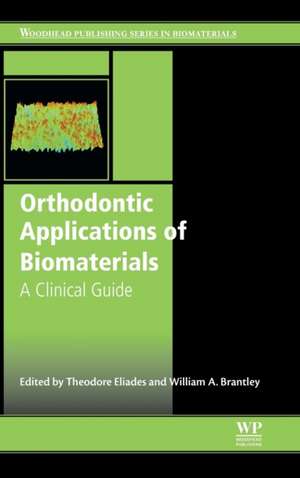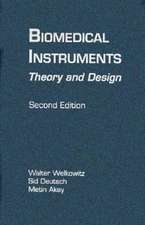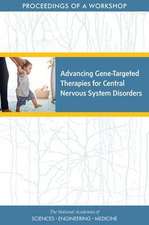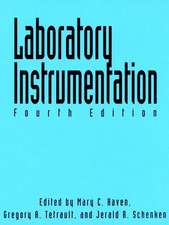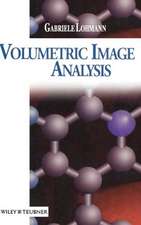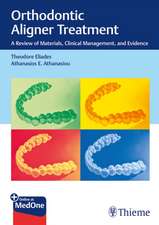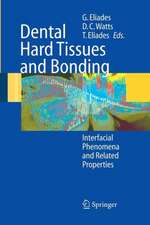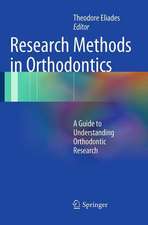Orthodontic Applications of Biomaterials: A Clinical Guide
Editat de Theodore Eliades, William A. Brantleyen Limba Engleză Hardback – 24 noi 2016
The book provides a step-by-step analysis of the phenomena occurring, their clinical importance, and their underlying cause without the use of complex mathematical or physical-chemical analyses, with the goal of providing ‘digestible’ evidence for the clinician.
- Serves as a reference source of the spectrum of biomaterials used in orthodontics
- Presents the most current evidence of state-of-the-art methods of materials research
- Provides substantiation for the effects occurring during the materials’ uses
Preț: 1049.20 lei
Preț vechi: 1104.42 lei
-5% Nou
Puncte Express: 1574
Preț estimativ în valută:
200.76€ • 210.18$ • 166.12£
200.76€ • 210.18$ • 166.12£
Carte tipărită la comandă
Livrare economică 31 martie-14 aprilie
Preluare comenzi: 021 569.72.76
Specificații
ISBN-13: 9780081003831
ISBN-10: 0081003838
Pagini: 318
Dimensiuni: 152 x 229 mm
Greutate: 0.66 kg
Editura: ELSEVIER SCIENCE
ISBN-10: 0081003838
Pagini: 318
Dimensiuni: 152 x 229 mm
Greutate: 0.66 kg
Editura: ELSEVIER SCIENCE
Cuprins
Part 1. Structure and properties of orthodontic biomaterials
1. Structure/property relationships in orthodontic alloys
2. Structure/property relationships in orthodontic polymers
3. Structure/property relationships in orthodontic ceramics
Part 2. Orthodontic alloys: properties and clinical effects
4. Orthodontic brackets
5. In vitro friction assessment in orthodontics
6. Nickel-titanium products in daily orthodontic practice
7. Material properties and effects on mechanotherapy
8. Adverse effects from orthodontic alloys
Part 3. Bonding to enamel with orthodontic adhesives
9. Composite resin polymerization and relevant parameters
10. Frequent handling mistakes during bonding
11. Bond strength and its limited role in assessing efficacy
12. Clinical evidence of bond failure and associated factors
13. Bisphenol A and orthodontic materials
14. Enamel alterations due to orthodontic treatment
15. Bonding of fixed lingual retainers in orthodontics
16. Bonding with glass-ionomer cements and resin-modified glass ionomer cements
17. Future of bonding
Part 4. Orthodontic aligners
18. Aligners for orthodontic applications
1. Structure/property relationships in orthodontic alloys
2. Structure/property relationships in orthodontic polymers
3. Structure/property relationships in orthodontic ceramics
Part 2. Orthodontic alloys: properties and clinical effects
4. Orthodontic brackets
5. In vitro friction assessment in orthodontics
6. Nickel-titanium products in daily orthodontic practice
7. Material properties and effects on mechanotherapy
8. Adverse effects from orthodontic alloys
Part 3. Bonding to enamel with orthodontic adhesives
9. Composite resin polymerization and relevant parameters
10. Frequent handling mistakes during bonding
11. Bond strength and its limited role in assessing efficacy
12. Clinical evidence of bond failure and associated factors
13. Bisphenol A and orthodontic materials
14. Enamel alterations due to orthodontic treatment
15. Bonding of fixed lingual retainers in orthodontics
16. Bonding with glass-ionomer cements and resin-modified glass ionomer cements
17. Future of bonding
Part 4. Orthodontic aligners
18. Aligners for orthodontic applications
